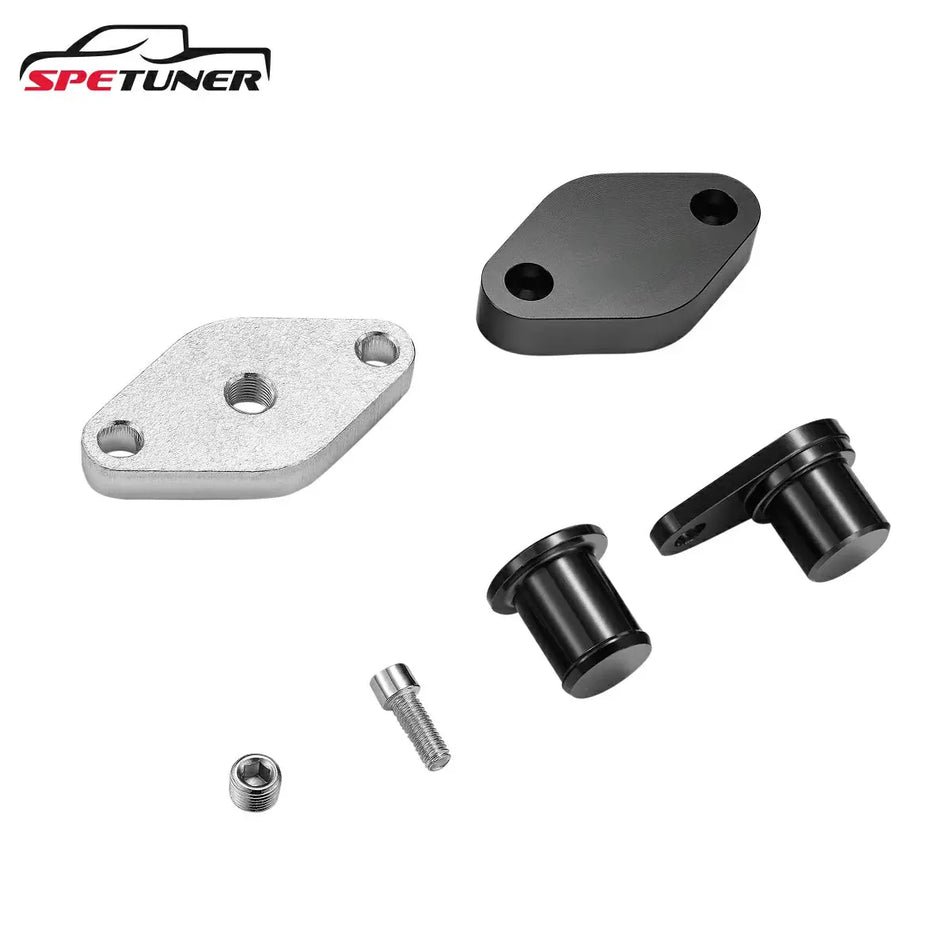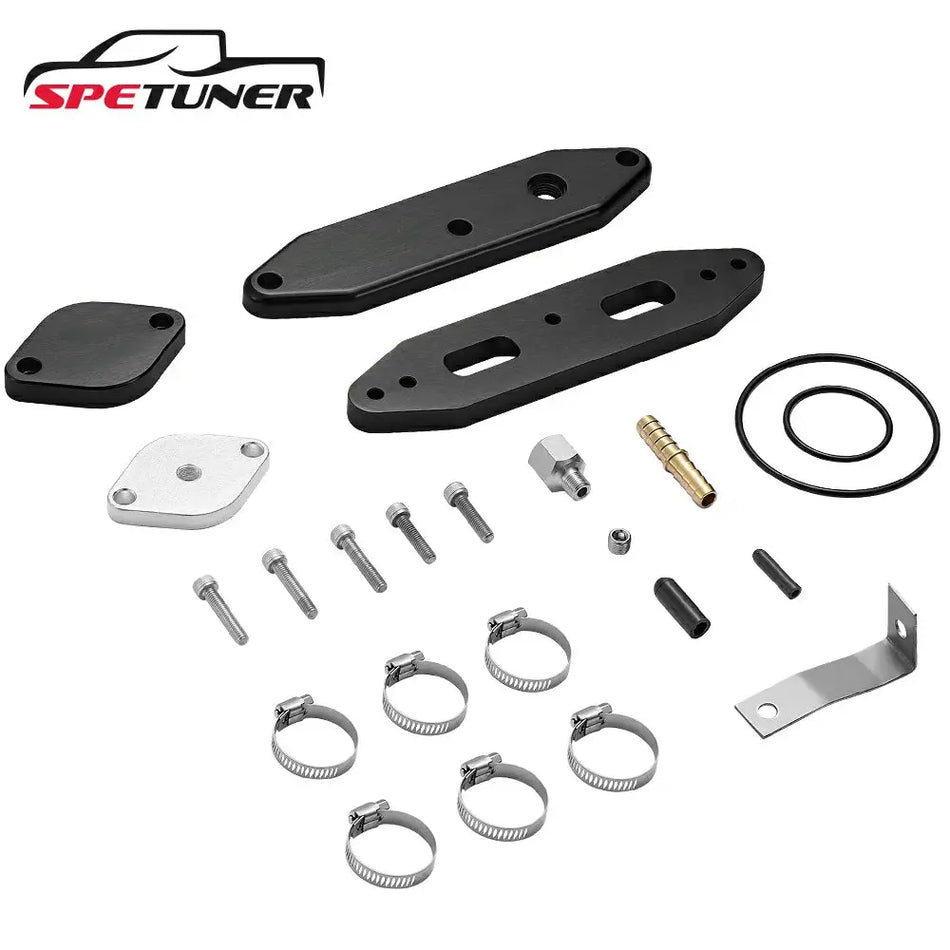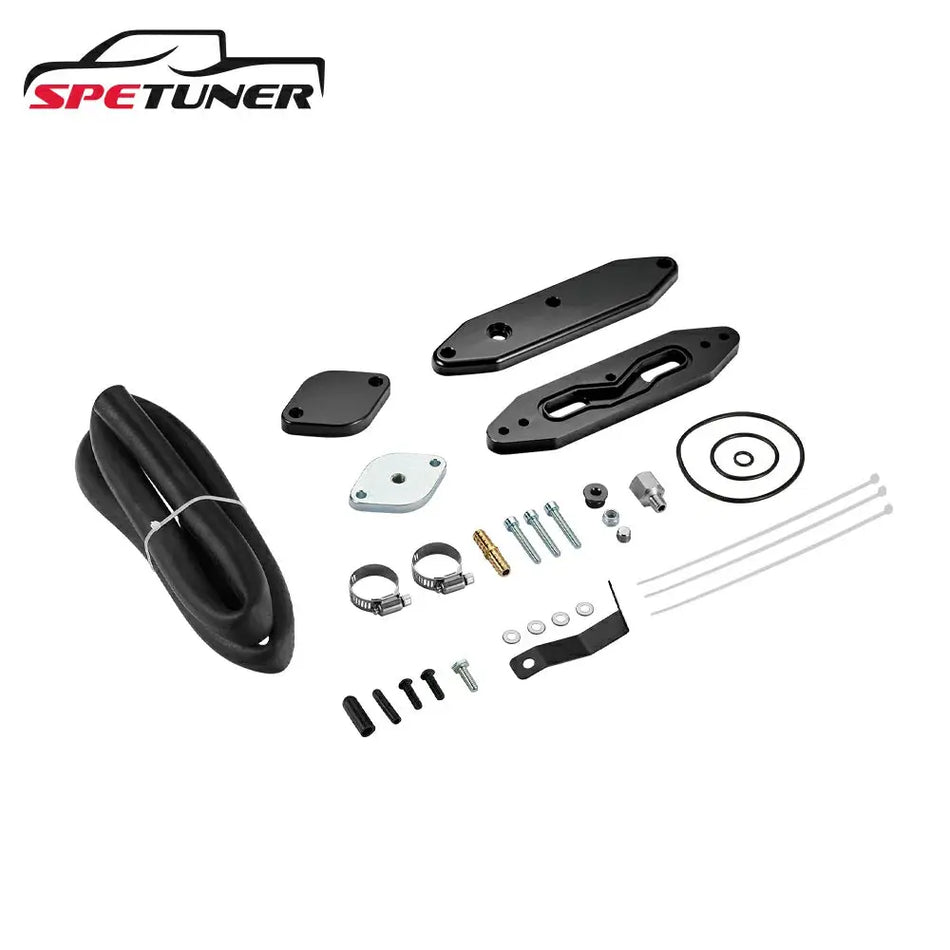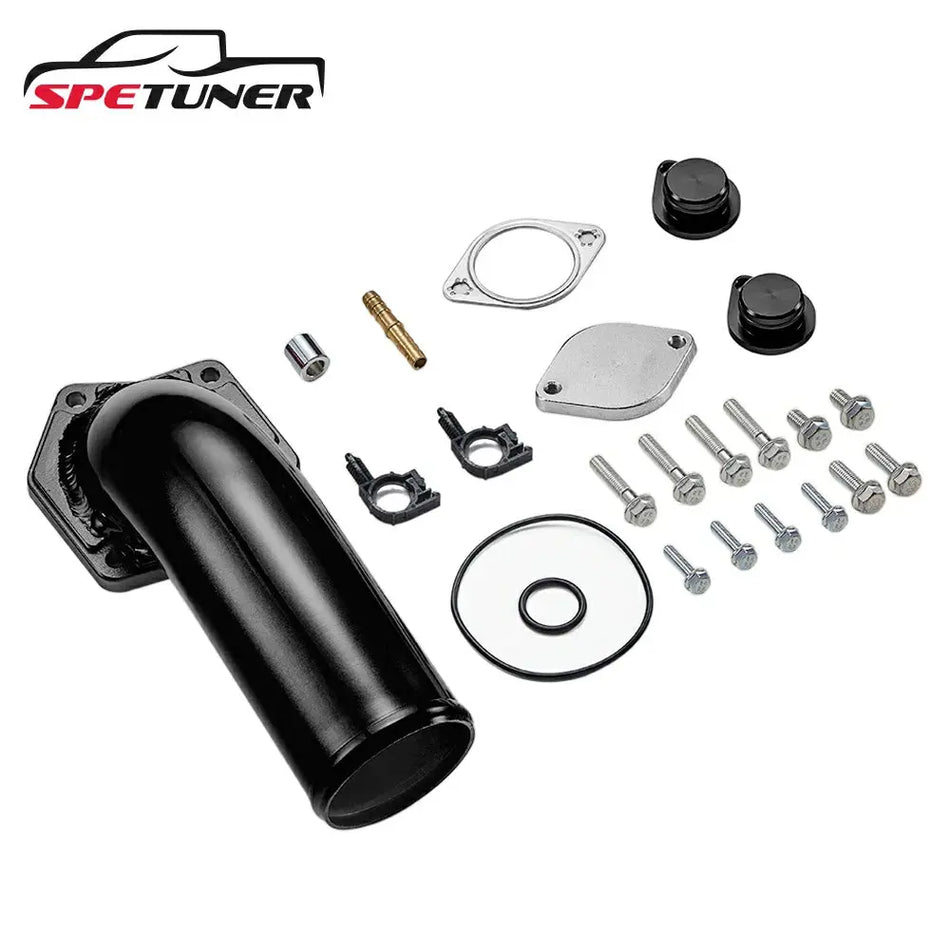If your diesel truck is blowing white smoke from the exhaust, it’s not something to ignore. Whether it’s a light mist on a cold morning or a thick cloud trailing you on the highway, white smoke can be a signal of deeper engine or emissions system issues. This guide breaks down the most common causes, what they mean, and how you can fix them—especially if you drive a Powerstroke, Cummins, or Duramax truck.
Is White Smoke Always a Problem?
Not necessarily. In colder climates, you may see thin white vapor during startup—this is just condensation and will disappear as the engine warms up. But if the white smoke is thick, persistent, or has a sweet smell, that’s a red flag.

Common Causes of White Smoke from Diesel Exhaust
1. Coolant Leak into the Combustion Chamber
This is one of the most serious causes. A leaking head gasket, cracked cylinder head, or damaged EGR cooler can let coolant seep into the engine’s combustion chamber. Once burned, it produces thick white smoke.
l Symptoms: Sweet smell in exhaust, loss of coolant, engine misfires, overheating
l Fix: Pressure test the cooling system. Consider replacing the head gasket or installing an EGR delete kit if EGR cooler is the issue.
2. EGR Cooler Failure
The EGR (Exhaust Gas Recirculation) cooler can crack internally, especially on high-mileage diesel trucks. This allows coolant to enter the intake system and burn with fuel, creating white smoke.
l Solution: Install an EGR delete kit to eliminate the EGR cooler entirely and prevent future leaks. SPETUNER offers complete EGR delete kits for 6.7 Powerstroke, 6.7 Cummins, and Duramax models.
3. Unburnt Fuel Due to Injector Issues
If fuel injectors are leaking or improperly timed, diesel may not fully combust. This is more common in colder weather or when glow plugs are failing.
l Symptoms: Rough idle, hard starts, fuel smell in exhaust
l Fix: Test and clean or replace injectors. Ensure the glow plug system is functioning.
4. DPF System Malfunction
While less common, issues with the Diesel Particulate Filter (DPF) or regen process can sometimes cause abnormal exhaust smoke.
l Fix: If regen cycles are incomplete or frequent, scan for DTC codes. Some truck owners choose a DPF delete for off-road use to eliminate regen problems and reduce backpressure.

How the Exhaust System Relates to White Smoke
White smoke is ultimately expelled through the exhaust system, which serves as a visual indicator of what’s going on internally. Any issue that affects combustion, cooling, or emissions will be "seen" through your tailpipe.
l Exhaust Manifold: Cracked or warped manifolds can affect pressure and flow, making symptoms worse.
l Turbocharger: Leaking seals can allow oil/coolant into the exhaust, mimicking white smoke.
l Aftermarket Exhaust: A free-flowing 4" or 5" exhaust system, especially when paired with deletes, helps lower EGTs and make symptoms more visible.
When to Act (and When You Can DIY)
l If the smoke clears after warmup: Likely condensation. No action is needed.
l If the smoke is persistent and smells sweet: Act fast. Coolant loss can cause serious engine damage.
l If it’s rough starting + white smoke: Check injectors and glow plugs.
How SPETUNER Can Help
If your white smoke points to an EGR cooler failure—or you simply want to prevent it before it happens—SPETUNER offers high-quality EGR delete kits and DPF delete systems for Ford Powerstroke, Dodge Cummins, and GMC Duramax diesel trucks.
Upgrading your exhaust system at the same time maximizes performance, reduces backpressure, and gives your truck a deeper, cleaner sound.
Browse our EGR Delete Kits and Exhaust Upgrades now, or reach out for expert help diagnosing your truck.
White smoke is your truck’s way of telling you something’s wrong. Listen to it, and take the steps to protect your engine—and your investment.
FAQs
Q1: How do you fix white smoke on a diesel engine?
A1: Start by identifying the cause—white smoke often results from coolant entering the combustion chamber, faulty injectors, or a cracked EGR cooler. Pressure test the cooling system, inspect injectors and glow plugs, and consider installing an EGR delete kit if the EGR cooler is the issue.
Q2: Is white smoke bad for a diesel engine?
A2: Yes, especially if it persists after warm-up. It may indicate coolant leaks, unburnt fuel, or emission system failures—all of which can cause long-term engine damage if left unaddressed.
Q3: What are the three types of smoke in a diesel engine?
A3: Diesel engines typically emit three types of smoke: white (coolant or unburnt fuel), black (excessive fuel or air restriction), and blue (burning oil). Each color indicates a different issue requiring a specific diagnosis.
Q4: How do I fix white smoke from exhaust?
A4: Identify whether it's caused by condensation (normal) or issues like a leaking head gasket, EGR cooler, or faulty injectors. Replace damaged components or install delete kits if needed. A thorough inspection is crucial.
Q5: Can a bad turbo cause white smoke?
A5: Yes. If the turbocharger's seals fail, it can allow coolant or oil to enter the exhaust system, resulting in white smoke that may resemble steam or mist.
Q6: Does white smoke always mean a blown head gasket?
A6: Not always. While a blown head gasket is a serious case, white smoke can also come from a cracked EGR cooler, injector issues, or cold starts. A diagnostic test is necessary to pinpoint the exact cause.
Q7: Will EGR delete stop white smoke?
A7: If the white smoke is caused by a leaking EGR cooler, then yes—an EGR delete kit removes the coolant-to-exhaust pathway, eliminating the root cause in many cases.
Q8: What does white smoke smell like?
A8: White smoke caused by burning coolant often has a sweet, syrup-like odor. If the smoke is from unburnt fuel, it will smell strongly of diesel.
Q9: How long should white smoke last after starting a diesel engine?
A9: In cold weather, thin white vapor may appear for the first 30–60 seconds. If it continues beyond that or worsens when warm, it likely signals a problem.
Q10: Can bad injectors cause white smoke?
A10: Absolutely. Faulty or leaking injectors can lead to incomplete combustion, especially in cold conditions, producing white smoke and poor engine performance.










